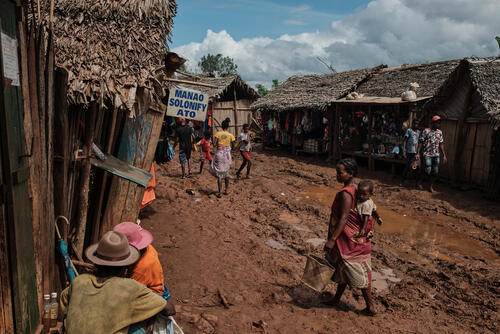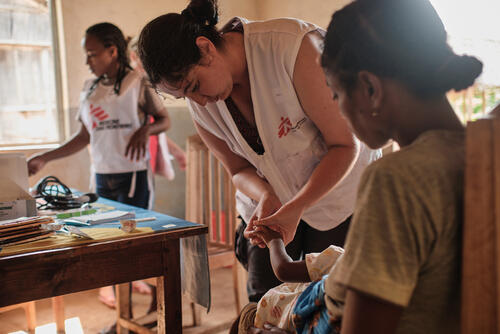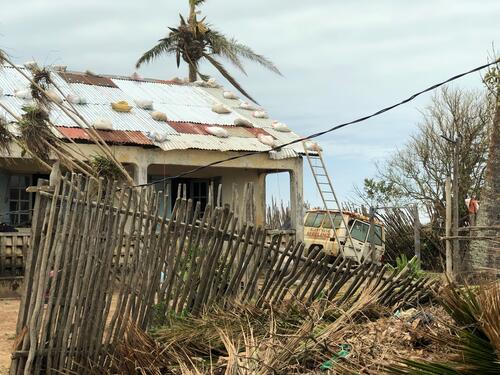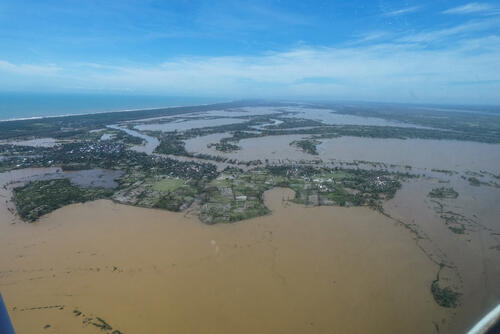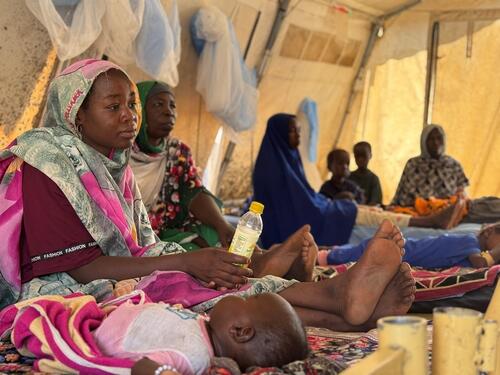Communities in Madagascar are recovering from cyclones in February of this year. These cyclones are the latest in a series of climate shocks which have impacted Madagascar.
“The two cyclones destroyed my life, my sources of income and my environment,” says Randrianaivo Haingolalao Honorine, who lives in the coastal village of Mananjary in eastern Madagascar. “I don't have a house anymore. It was wrecked by cyclone Batsirai and I haven’t been able to rebuild it.”
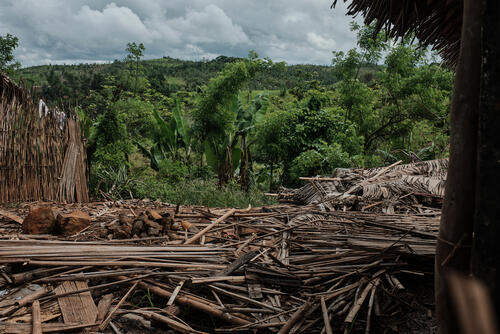
Randrianaivo is not the only one facing massive upheaval from the recent cyclones. Between 5 and 22 February, cyclones Batsirai and Emnati hit the east coast of Madagascar, causing widespread damage and destruction. The cyclones destroyed a number of health centres, reducing the already limited access to healthcare remote communities had. More than 300, 000 people are estimated to have been affected by the two cyclones.
The cyclones were the latest in a series of climate shocks communities in Madagascar have experienced in recent years. The country faces extreme weather events regularly. People in the southern part of the country are just recovering from the effects of an exceptionally severe drought, which caused alarming levels of malnutrition.
Madagascar is affected by tropical storms of varying intensity every year, with February’s cyclone Batsirai a highly destructive Level 4. Between the end of January and the beginning of March, five tropical storms and cyclones hit the island.
In the aftermath of the cyclones, MSF emergency teams began providing healthcare to people in the remote coastal district of Nosy Varika, where the local hospital and five health centres had been badly damaged.
“It was quite a challenge to bring in assistance,” says Mathilde Guého, MSF’s emergency coordinator in Madagascar. “Roads were almost unusable and we had to cross three rivers to get to Nosy Varika. Sometimes the rivers were so full it wasn’t possible at all.”
MSF has been working to reconstruct the damaged hospital and five health centres. Teams have also been running mobile clinics by boat in places where people have had very limited access to healthcare after the cyclone. Medical teams treat some 345 patients per week, mainly for conditions like malaria, diarrhoea and respiratory tract infections, but the number of children with acute malnutrition is on the rise.
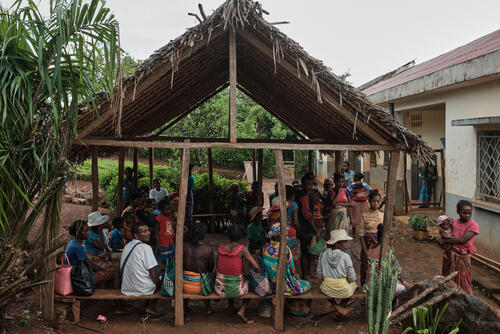
Rondolphe, a boat mechanic and driver from Mahanoro, explains that most people in the area make their livings as fishermen and farmers. “People will find it difficult to get back on their feet – all the crops have been damaged,” he says.
Fish have become much harder to find, reducing the income of fishermen by almost 90 percent. “And with the changing climate, sometimes dry, sometimes rainy, it has become difficult to grow rice, because when there is a lot of rain, it washes away the crops,” says Rondolphe.
Local community members tell MSF how they are trying to find new means to survive. Phillipe Randiar, a farmer from Namorona, says he is trying to make and sell bread after all his clove, coffee and rice crops were destroyed. Some farmers have also started to fish, but considering fish are not plentiful and people cannot afford to buy them anyway, it is hard to be optimistic.
“We’re really concerned about how this will affect people in the longer term,” says Mathilde. “The lean season was at its peak when the cyclones hit and as people have largely lost their sources of income, it’s very likely this will impact their food supply and nutrition. Especially because many people here were already so vulnerable. We’re keeping a close eye on this and getting ready to help if needed.”
The lean season was at its peak when the cyclones hit and as people have largely lost their sources of income, it’s very likely this will impact their food supply and nutrition.Mathilde Guého, MSF’s emergency coordinator in Madagascar
Experts have repeatedly warned that extreme weather events like cyclones will become more frequent and intense due to climate change. Vulnerable communities like those in Madagascar will continue to be hard hit by repeated climate shocks and struggle to rebuild each time.



